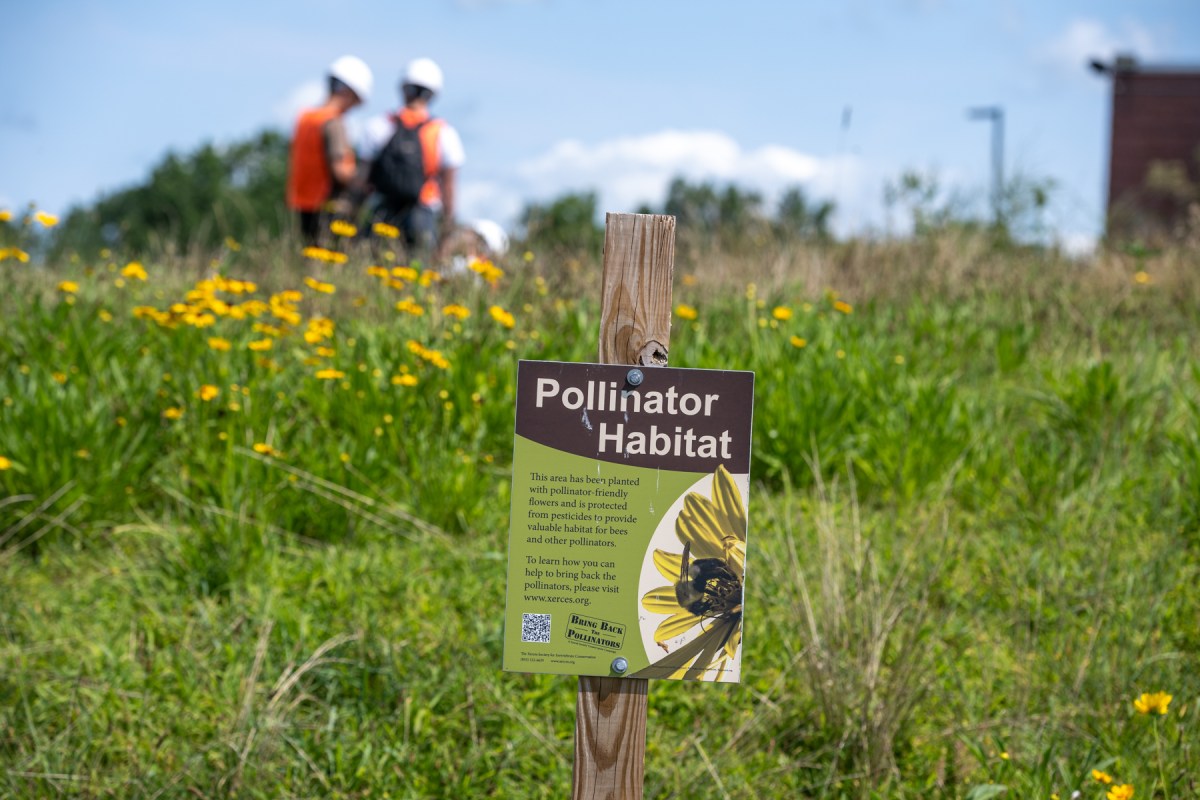VANCOUVER, B.C. – In the ’60s, it was groovy. In the ’90s, it was radical. It seems every decade has a trendy word that can either stick in the popular lexicon or quickly become dated or lose its meaning. One word that’s getting a lot of use these days is “sustainable.”
The dictionary definition states “to be able to maintain at a certain rate or level.” However, in the last few years, it’s turned into a marketing buzzword that is used to hawk everything from cereal to travel packages. And some young environmentalists wonder if the word’s well-intentioned meaning will soon be lost.
Emilia Kennedy, a Simon Fraser University master’s candidate, is currently doing her thesis on this subject. The 28-year-old said it’s “urgently necessary” to start raising concerns about a word that is so important, yet so broadly used.
“Sustainability is the idea of the three P’s, the triple bottom line – people, profit and pandas. Or environment, equity and economy,” she said. “It’s the desire to do everything right, which is noble. But I started noticing that it came with problems.”
Kennedy said the categories behind the word – environment, equity and economy – are being “papered over.” She referred to the catchphrase “Save the Environment,” stressing that it’s a slogan that encompasses the entire planet.
“We live in a world with limited resources and limited time,” she said. “If it came down to saving a penguin or saving a panda, which one would you pick? The word ‘sustainability’ doesn’t offer us any tools for which to pick.”
Ultimately, Kennedy hopes her research helps her understand the political consequences of a word that is agreed upon by nearly everyone. She uses “freedom” or “democracy” as similar examples.
“It’s a slippery term,” she said. “Perhaps when we talk about sustainability, it might be more valuable to further qualify what we mean when we say it.”
Rhianna Nagel with the Environmental Youth Alliance in Vancouver relates to Kennedy’s concerns, and said she’s worried that “sustainability” is too much of an “easy sell.”
“The commodification of sustainability is the largest problem,” said Nagel. “I think that most people who become involved have really good intentions, but it becomes perverted by using it as a marketing tool.”
Nagel, 28, said she doesn’t dismiss the positive aspect of the word, as it’s able to attract those who might not be interested otherwise. However, she stressed the real challenge would be relaying the whole picture to that exact group.
“We live in a consumerist society,” Nagel said. “It’s tricky to know exactly how to go about getting through to people (about) what their commodities are and what they mean in terms of sustainability.”
One veteran environmentalist disagrees with such criticism. John Robinson of the University of British Columbia’s Department of Geography has been involved in what are now called sustainability issues since the mid-1970s. He referred to the simple language used in the United Nations as an example.
“As diplomats know, international negotiations have to use broad language to keep everyone in the room. This is what I call ‘constructive ambiguity,”‘ he said. “If you define things too precisely, you lose a lot of people who have a slightly different definition.”
He also stressed that the word “sustainability” is not a scientific term, but a “normative ethical principle.”
“(It) needs to be grappled with by each community and generation trying to achieve it,” he said.
Like Kennedy, Robinson likens the tone of “sustainability” to words like “democracy,” “truth” and “justice,” but argues that their broadness does not make them any less valuable.
“We have managed to find these three terms useful for several thousand years without any precise definition with which everyone agrees,” he said.
“In my view, the category mistake lies in thinking that sustainability is a scientific concept that can be defined precisely.”
















